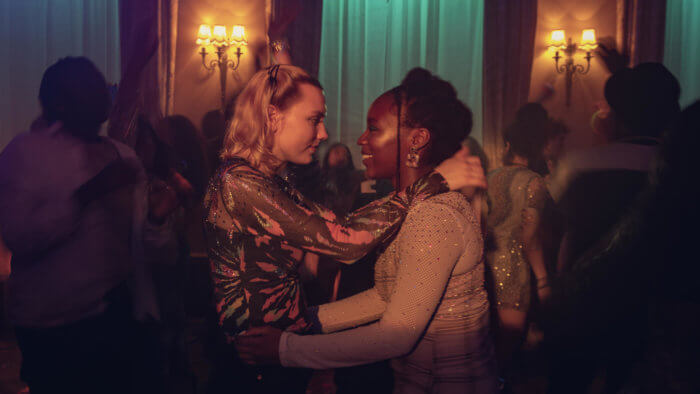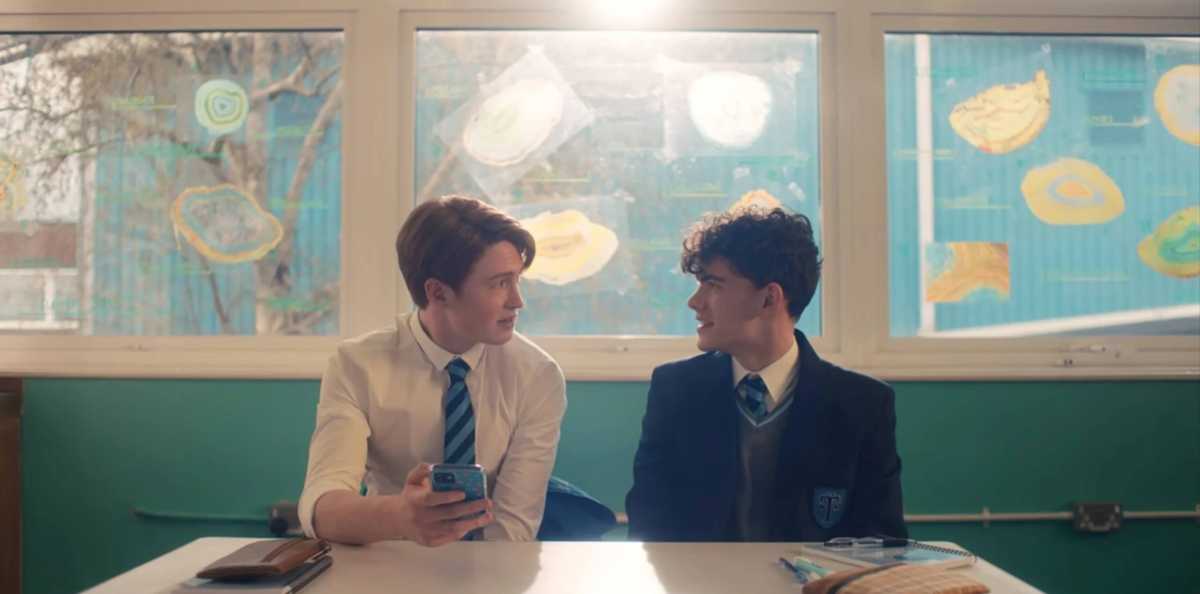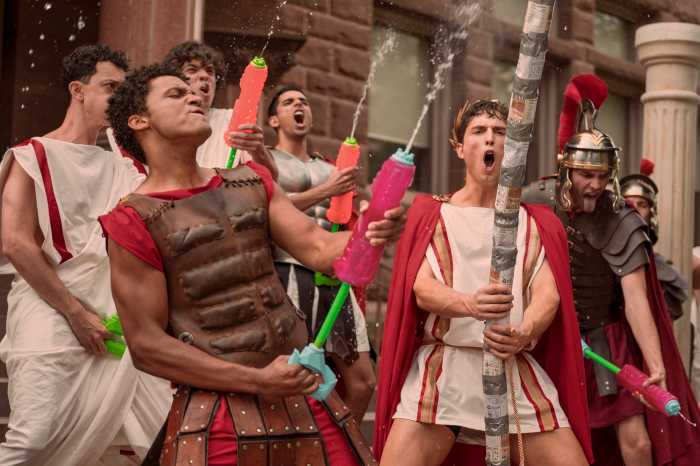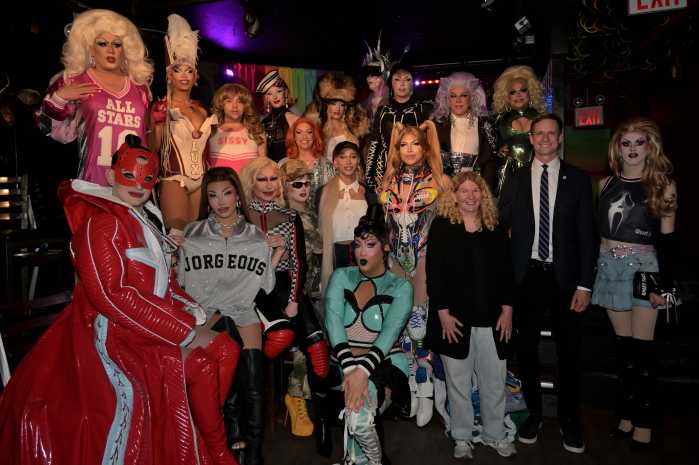Boy meets boy. Boys become friends. Boys say “hi” to each other a million times before eventually falling in love.
Charlie Spring (Joe Locke) is a self-proclaimed nerd — good at video games, literally all school subjects, and even playing the drums. We first meet him as he walks into class at Truham Boys School at the beginning of a new semester with a sense of hope and a smile on his face. This doesn’t seem that hard to believe, given that Charlie has a good group of protective friends who are willing to go to war for him and a secret boyfriend who… is closeted and admittedly could be treating him better. All things considered, though, he’s doing well for himself. This changes though when Charlie meets Nick Nelson (Kit Connor) — “one of the rugby boys.” The two lock eyes, smile, say their first of what will be many greetings, and their crush on each other begins.
Based on the popular webcomic-turned bestselling graphic novel by Alice Oseman, “Heartstopper” explores the friendship-turned-romance between Charlie and Nick. Over the course of the next few episodes, Charlie grapples with his developing crush on Nick, who is described by Charlie’s friends as the “straightest person ever,” all while learning how to better stand up for himself and pursue what he wants. Meanwhile, Nick is on a journey of his own, trying to understand his changing feelings towards Charlie, his desire to spend more time with him and why he feels a certain spark whenever the two are close.
It would be easy for “Heartstopper” to spend the entirety of its runtime building up the tension of whether or not these two end up together. Wisely though, it chooses not to. The inevitable, aww-inducing first kiss comes early enough in the show that I’m not worried about spoiling it for you. It’s the subsequent journey that matters, and is also when “Heartstopper” gets most interesting.
Plus, Charlie and Nick won’t be the only characters that viewers will be rooting for. Rounding out the cast are Elle (Yasmin Finney), a Black trans student who recently moved away from Truham to an all-girls school; Isaac (Tobie Donovan), the group’s resident bookworm and new character not based on anyone from the comic; Tao (William Gao), a movie buff committed to protecting Charlie from bullying; Tara Jones (Corinna Brown), a newly out lesbian and friend of Elle’s; and Darcy Olsson (Kizzy Edgell), the group’s token instigator.

There are many reasons why “Heartstopper” works so well — the most important being how it showcases queer joy. Every LGBTQ+ character gets their moment to thrive, romantically and beyond. It shouldn’t feel radical to witness these characters befriend each other and help each other grow, but it really does. This is not to say that the show ignores the realities of coming out or the sometimes cruel nature of teenagers. Several references are made to Charlie, Elle, Tara, and Darcy being subjected to bullying for being queer. The show wisely doesn’t focus on those instances, which are fleeting and pale in comparison to the moments when the characters shine.
Another key to the show’s success is how it explores queer relationships, particularly Charlie and Nick’s. The show never shies away from their affection for each other, but does so in a way that seems shockingly unique for contemporary shows about teenagers. “Heartstopper” sets itself apart by trading in nudity and expletives for tender moments of holding hands and sneaking kisses. In a lesser show’s hands, this could potentially read as a setback in queer representation, but in Oseman’s story it feels like the right decision for the characters.
The final key to the show’s success is its casting. Having actual teenagers play these characters allows the show’s message to be all the more genuine. The actors have been perfectly cast, with each bringing a nuance to their respective roles worthy of their source material. Locke, Connor, and Finney in particular give great performances, and I would be remiss not to point out that Olivia Colman’s brief role as Nick’s mom gives Jennifer Garner’s “Love, Simon” performance a run for its money.
Watching “Heartstopper,” it’s hard not to imagine how my life would be different if more shows like it existed when I was younger. Would I have come out sooner? Could I have had a gay teenage romance that I didn’t even realize I wanted until I saw it portrayed as beautifully as it is here? Even knowing other gay people when I was in high school would have been revolutionary. When Nick tells Charlie that he wishes he knew him when he was younger, I recognized a need I didn’t know I was missing.
On a bigger scale, it is impossible to ignore the potential impact a show that champions queer joy can have at a time in America where new anti-LGBTQ+ bills that specifically target queer youth are introduced each day. It’s no wonder that LGBTQ+ youth are more than four times as likely to attempt suicide than their peers, with an estimated 1.8+ million queer youth who seriously consider suicide each year in the US, according to the Trevor Project.
A television show alone will not solve all these problems. However, just as its predecessors — from “The Ellen Show” to “Will & Grace” to “Glee” to as recent as “Love, Victor” – helped humanize and celebrate queer people, I hope that “Heartstopper” and the way it depicts unapologetic queer joy can play even the smallest role in changing the conversation on how we can actually protect LGBTQ+ youth.
“Heartstopper” | Available on Netflix

































